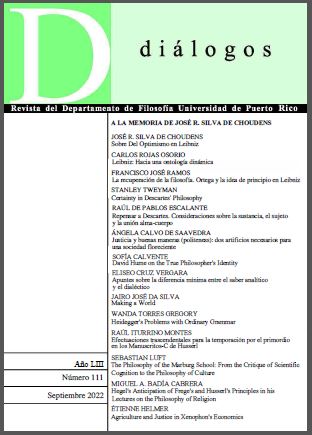Abstract
My starting point in this article is the transcendental character of Husserlian phenomenology. This character receives a precise definition and actualization in Husserl’s concrete intentional analyses. It is my aim to expound and discuss several of these transcendental structures, taking into account mainly the research manuscripts published under the title Späte Texte über Zeitkonstitution (1929-1934), Die C-Manuskripte, which gathers the results of Husserl’s final research on time. They deal with the transcendental structures operating in the most originary level presupposed by all constitution of the temporality of the ontic since they thematize the temporalization of immanent objects and the self-temporalization of the transcendental ego (in particular the former), that is, structures such as those which make possible the temporalization of the so called “hyletic data”, namely, those responsible for bringing such data into the present, including their immediate past and future (perceptual, retentional and protentional lived experiences). Those lived experiences which wake up objects from their state of latency in oblivion, such as “re-presentations”, re-memories in particular, are considered too. The problem of the possibility of having the object’s past is discussed with some amplitude. The treatment of this topic takes places within the framework of a general consideration of temporalizing lived experiences, from perceptual to re-memorative lived experiences.

This work is licensed under a Creative Commons Attribution-NonCommercial 4.0 International License.

